Clinical Research
Find out more about the EAAA Research, Audit, Innovation and Development (RAID) group and read our research publications below.
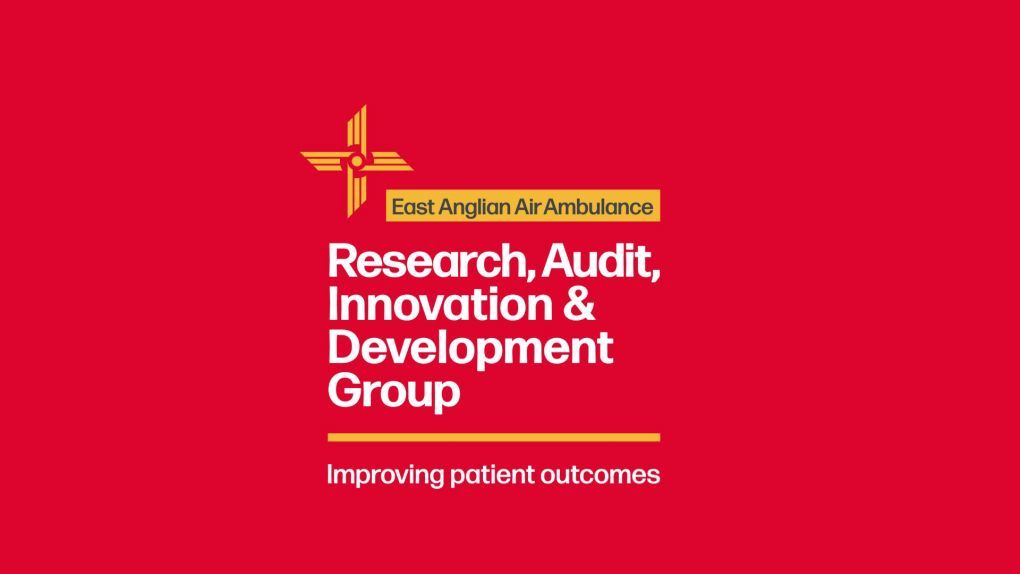
East Anglian Air Ambulance (EAAA) aims to provide the best possible care to our patients. Our Research Audit Innovation & Development (RAID) group supports us to monitor and continually improve the service we provide and use the latest evidence behind cutting edge pre-hospital care to develop new treatments, equipment, and skills.
We carry out original research and evaluation studies and collaborate across our network of other air ambulances, the NHS and universities to share knowledge. Our ultimate aim is to improve emergency care for all patients.
Below is a selection of recent publications by EAAA staff or using EAAA data.
RAID Posters
Below is a selection of research posters presented by RAID at academic conferences:
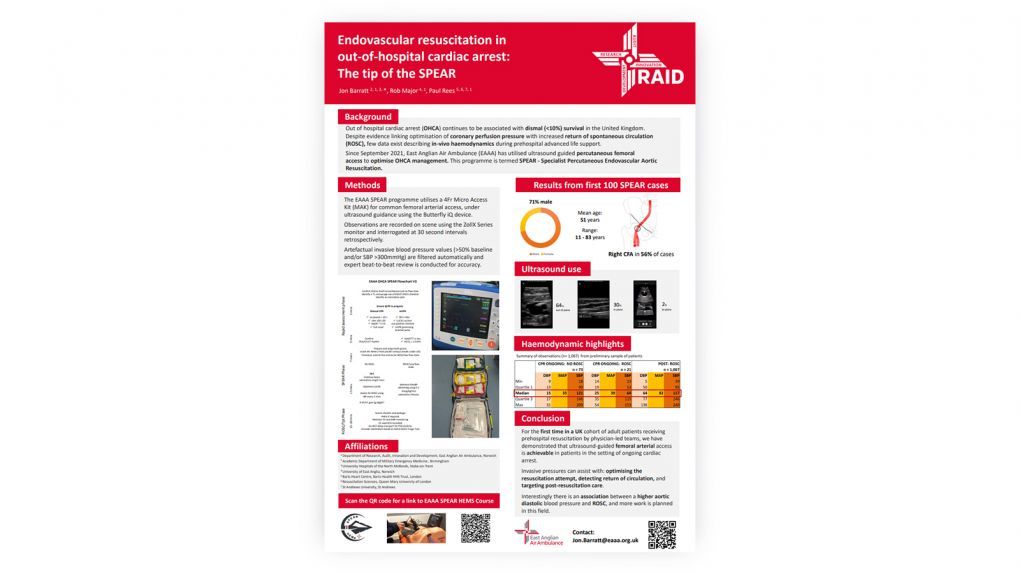
Endovascular resuscitation in out-of-hospital cardiac arrest: The tip of the SPEAR
(International Conference on Emergency Medicine 2023)
View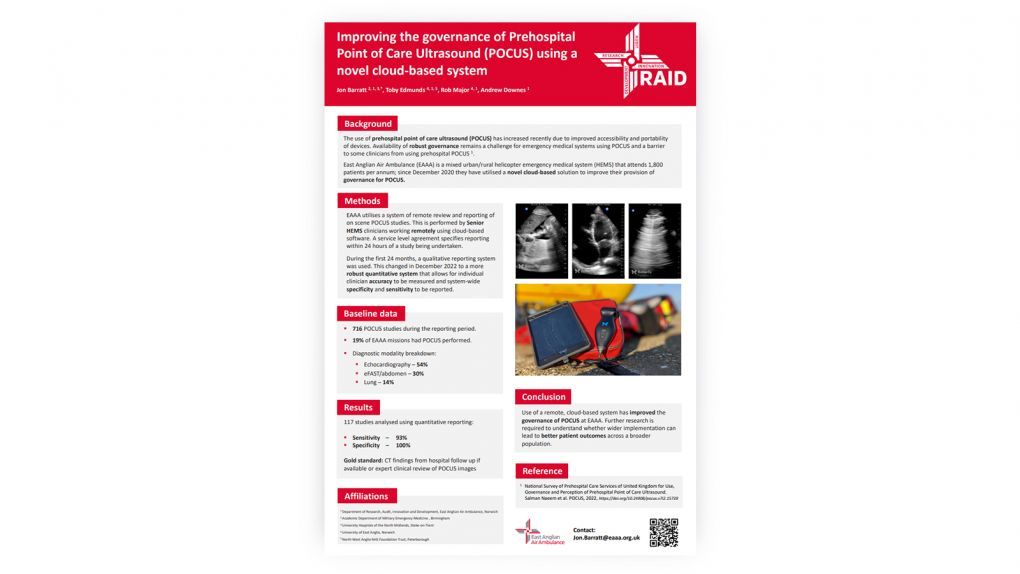
Improving the governance of prehospital point of care ultrasound using a novel cloud-based system
(International Conference on Emergency Medicine 2023)
View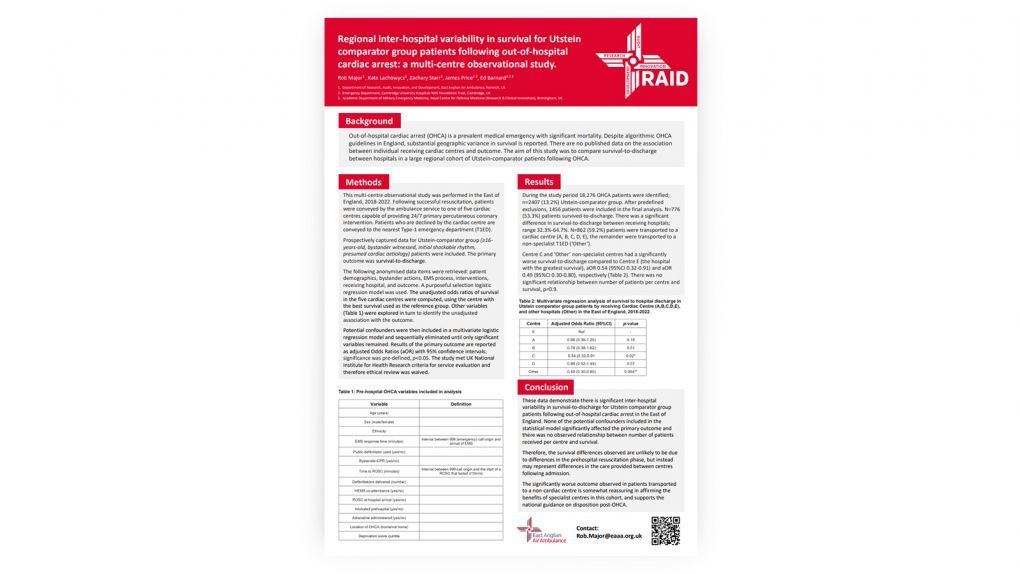
Regional inter-hospital variability in survival for Utstein comparator group patients following out of hospital cardiac arrest: a multi-centre observational study
(RAID Conference 2023)
View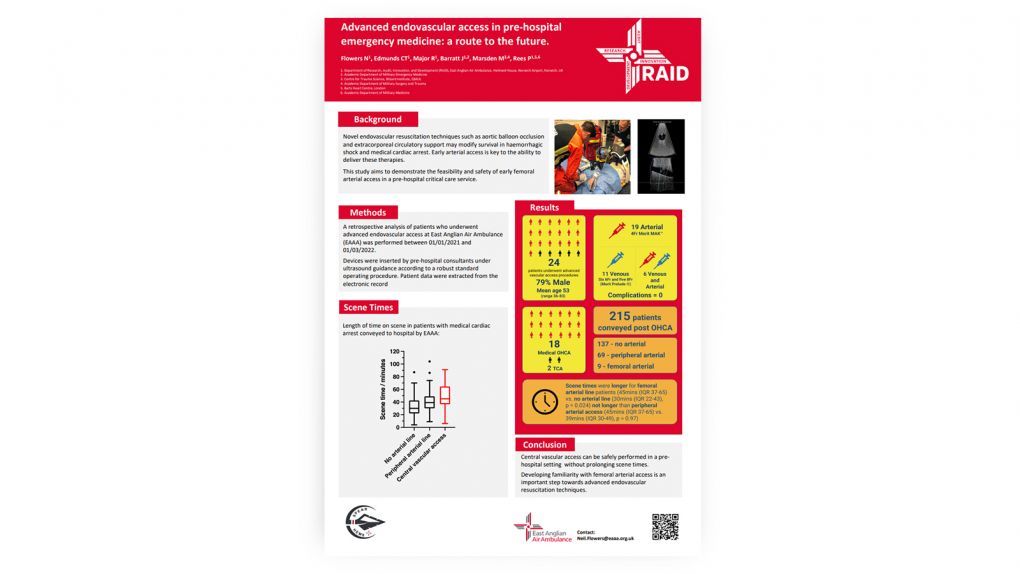
Advanced endovascular access in pre-hospital emergency medicine: a route to the future
(Royal College of Emergency Medicine Annual Scientific Conference 2022)
View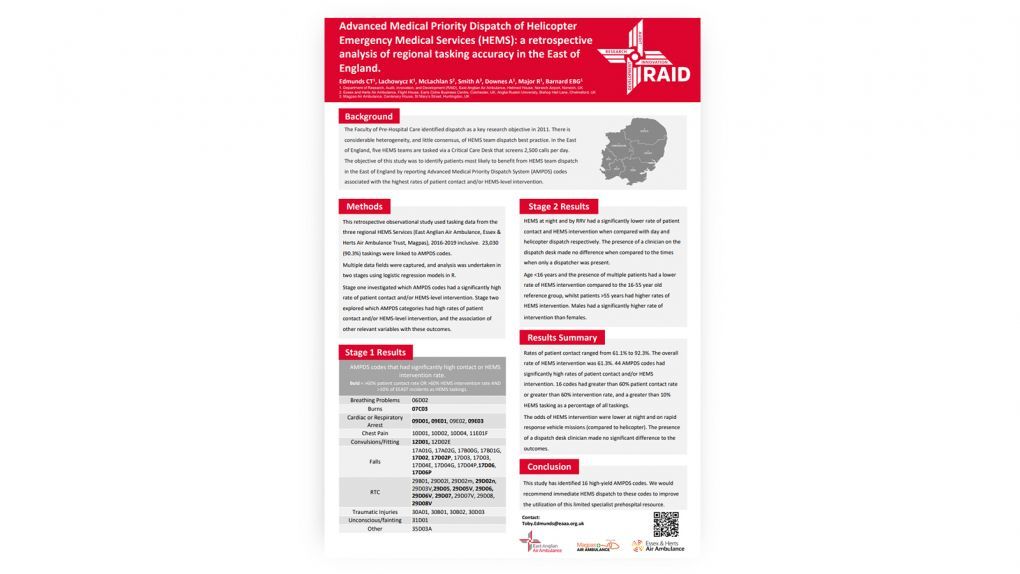
Advanced Medical Priority Dispatch of a Helicopter Emergency medicine services (HEMS): a retrospective analysis of regional tasking accuracy in the East of England
(Royal College of Emergency Medicine Annual Scientific Conference 2022)
View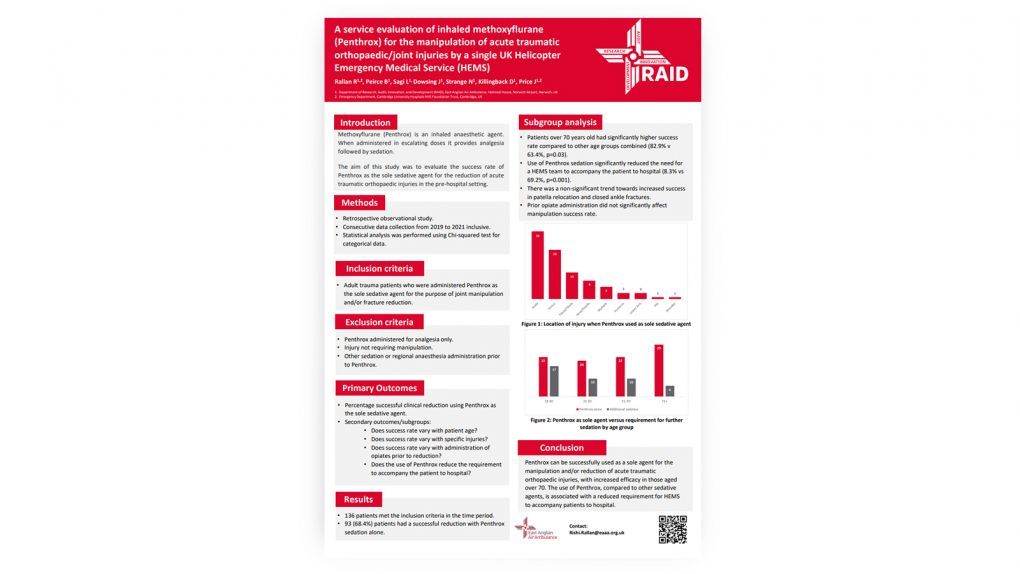
A service evaluation of inhaled methoxyflurane (Penthrox) for the manipulation of acute traumatic orthopaedic/joint injuries by a single UK Helicopter Emergency Medical Service (HEMS)
(Royal College of Emergency Medicine Annual Scientific Conference 2022)
View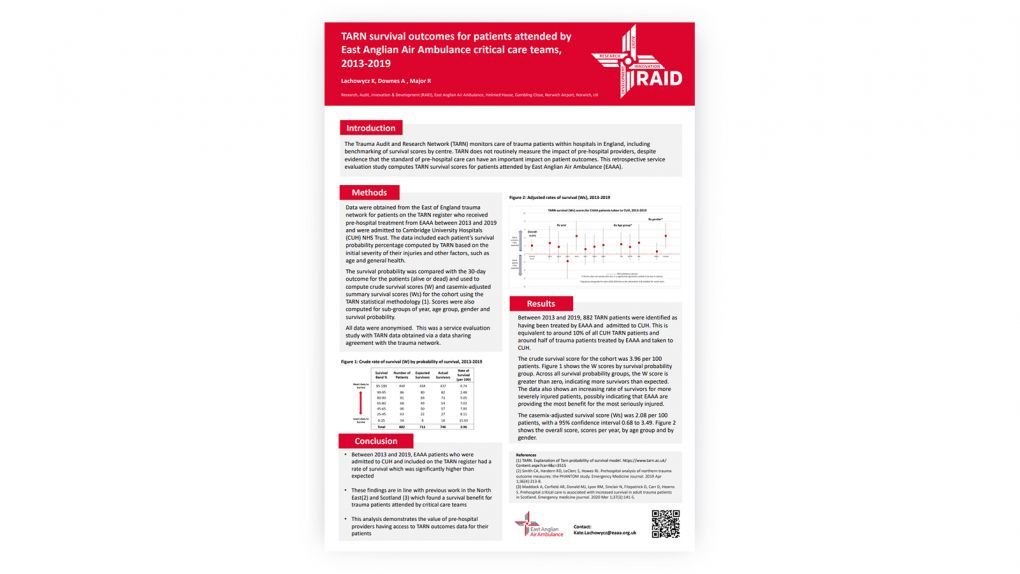
TARN survival outcomes for patient attended by East Anglian Air Ambulance critical care teams 2013-2019
(Royal College of Emergency Medicine Annual Scientific Conference 2022)
View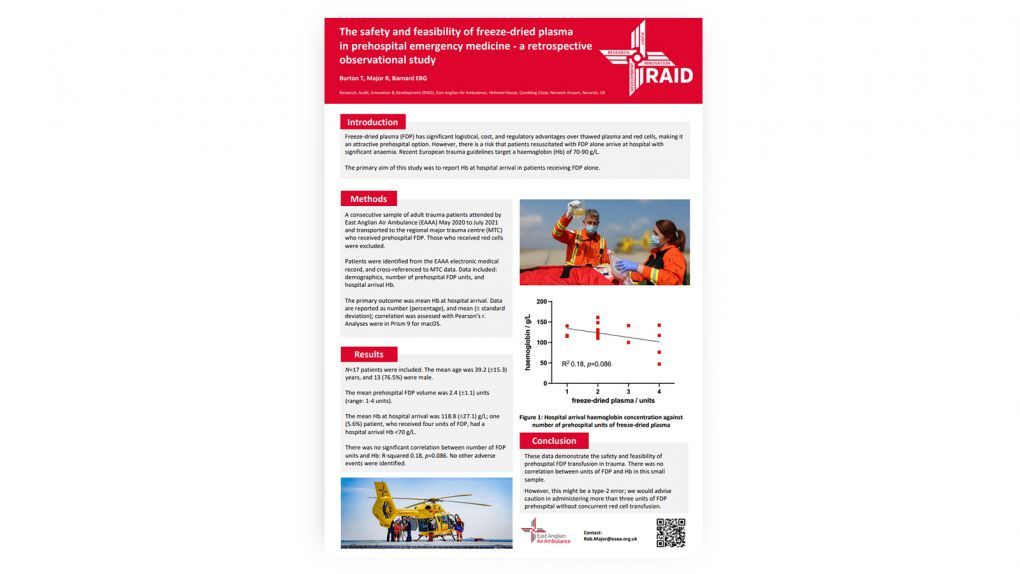
The safety and feasibility of freeze-dried plasma in prehospital emergency medicine – a retrospective observational study
(Royal College of Emergency Medicine Annual Scientific Conference 2022)
ViewTraining Courses
EAAA’s Academy of Pre-Hospital Emergency Medicine (PHEM) provides an academic platform from which we can share our expert and specialist knowledge with others. The ultimate goal is to develop the future of pre-hospital emergency medicine to improve outcomes for patients.
We strive to improve understanding and skillset in the field of PHEM on both a national and international level. To date, we have trained many of our own clinicians and critical care doctors and paramedics from other HEMS organisations and the NHS, as well as international clinicians in a range of innovative procedures and pre-hospital interventions.
We offer a range of clinical courses. For further information and to book, please visit our Clinical Education page.
Check out our coursesPublished research
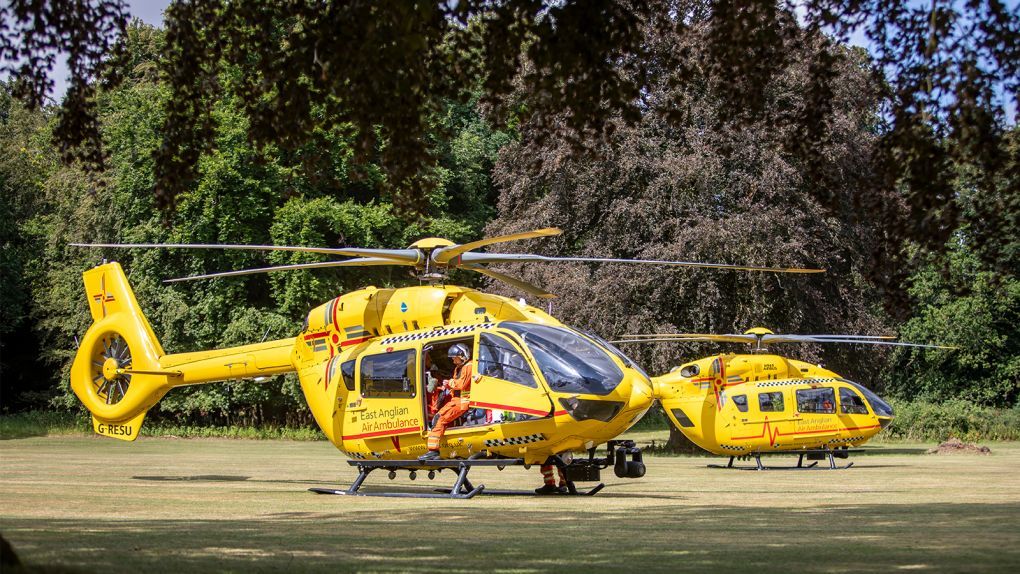
Implementation of advanced vascular access, physiological monitoring and goal-directed resuscitation during OHCA in a helicopter emergency medical service
View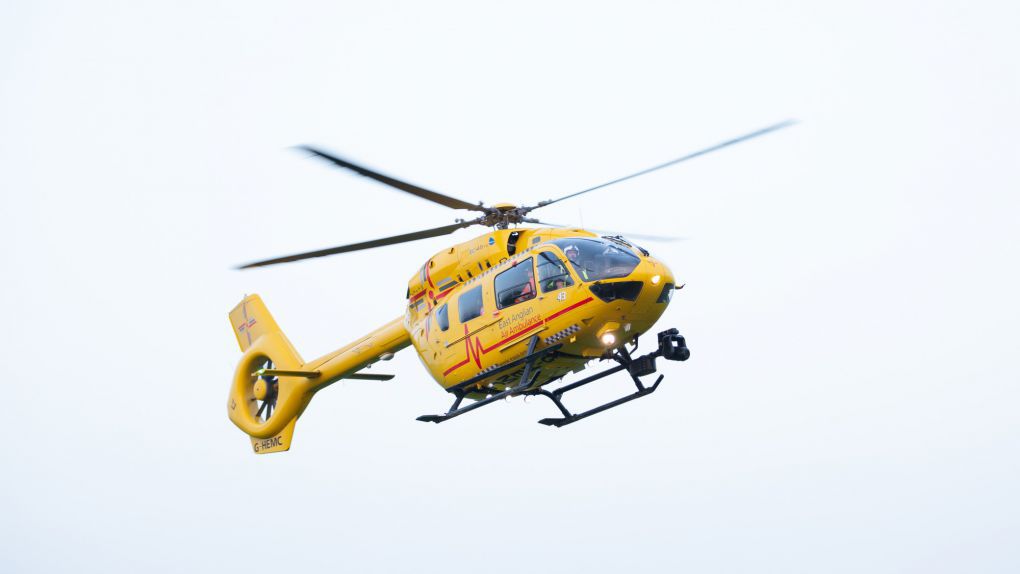
Prehospital invasive arterial blood pressure monitoring in critically ill patients attended by a UK helicopter emergency medical service– a retrospective observational review of practice
View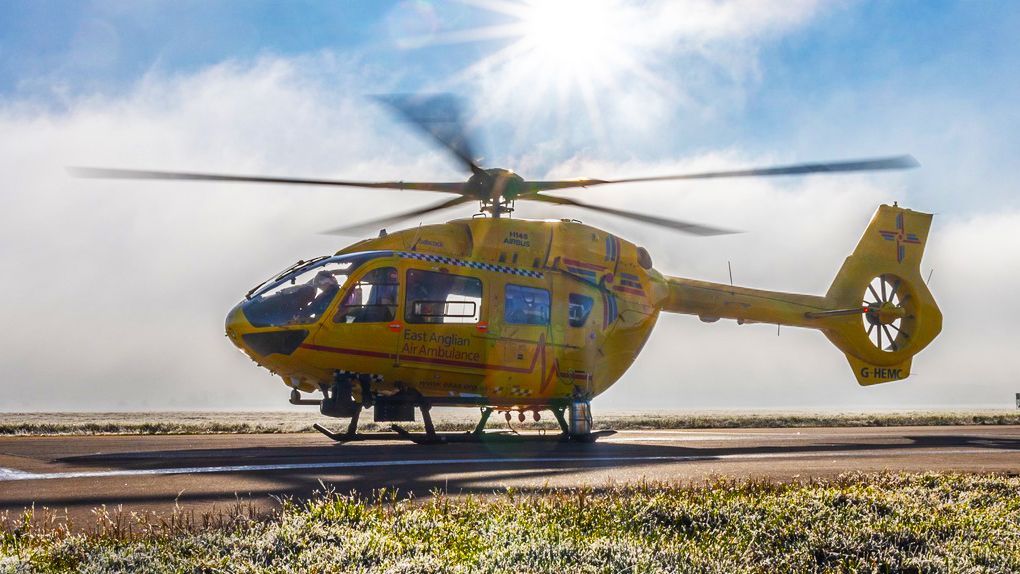
Critical hypertension in trauma patients following prehospital emergency anaesthesia: a multi-centre retrospective observational study
View
Nine golden codes: improving the accuracy of Helicopter Emergency Medical Services (HEMS) dispatch - a retrospective, multi-organisational study in the East of England
View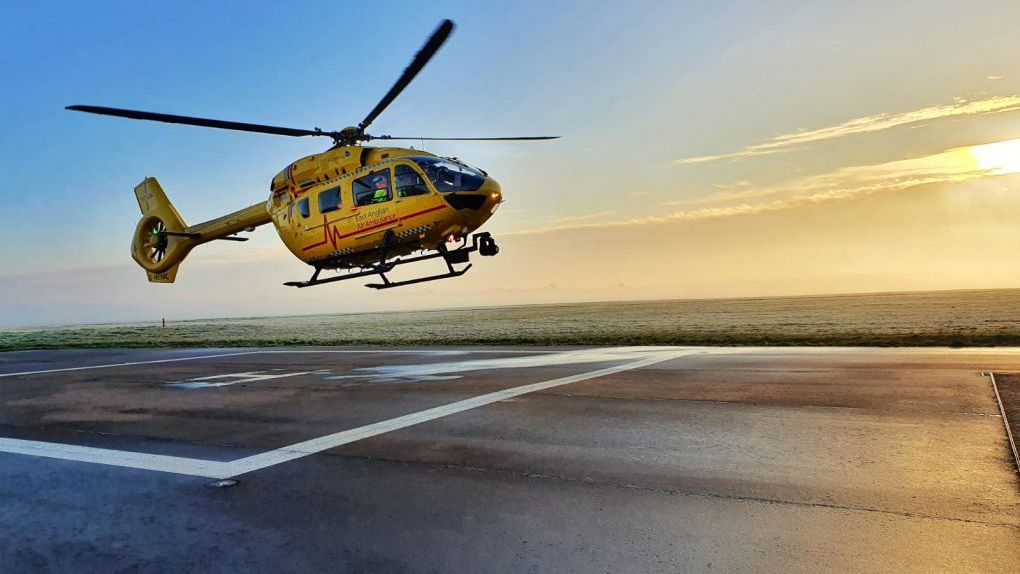
Predictors of post-intubation hypotension in trauma patients following prehospital emergency anaesthesia: a multi-centre observational study.
View
RCEM abstract: Intubation success in prehospital emergency anaesthesia: a retrospective observational analysis of the Inter-Changeable Operator Model (ICOM).
View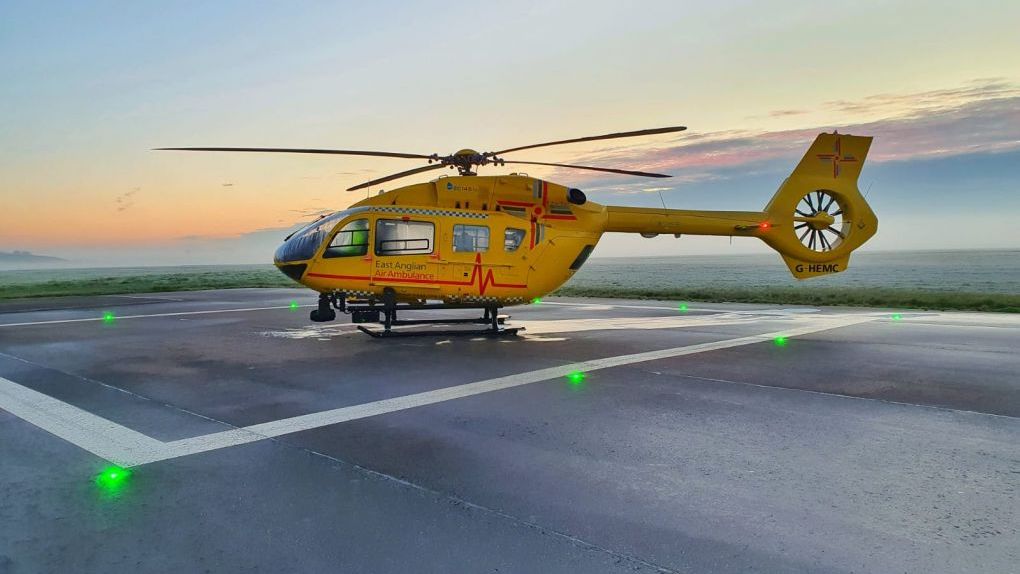
RCEM abstract: Determinants of post-intubation hypotension in trauma patients following prehospital emergency anaesthesia.
View
RCEM abstract: The differential determinants of delivering prehospital emergency anaesthesia within 45-minutes of the 999-call – a multi-centre, retrospective observational study.
View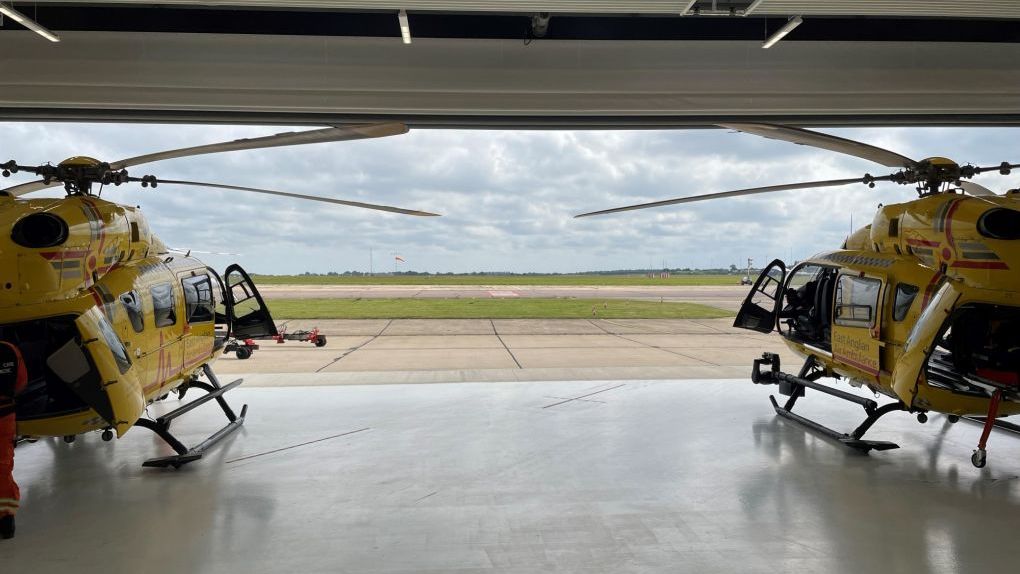
A National Survey of Prehospital Care Services of United Kingdom for Use, Governance and Perception of Prehospital Point of Care Ultrasound.
View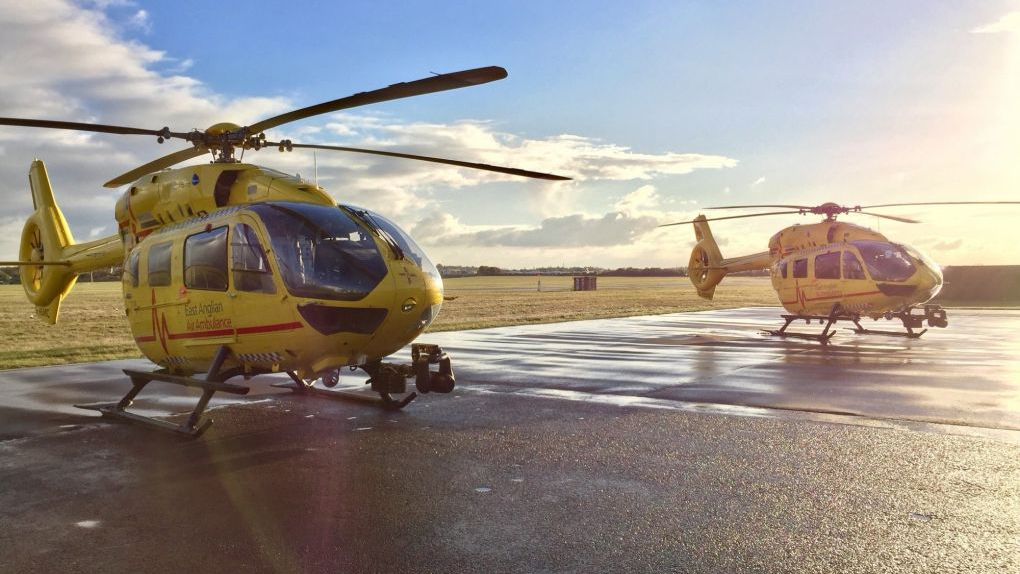
Intubation success in prehospital emergency anaesthesia: a retrospective observational analysis of the Inter-Changeable Operator Model (ICOM)
Read the research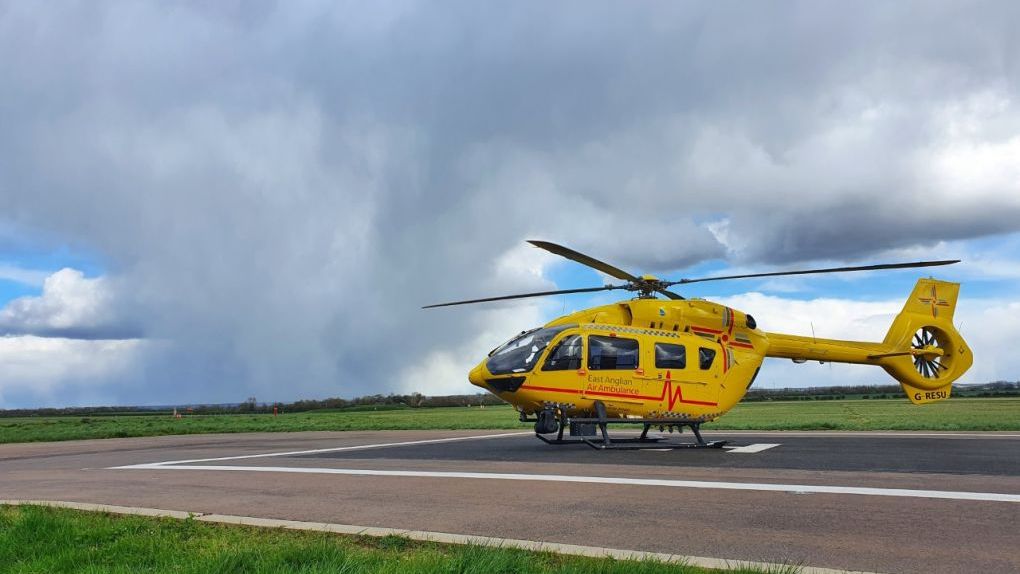
Listen to the Podcast 'Resus Room', talking about the interchangeable operator model paper.
Listen Now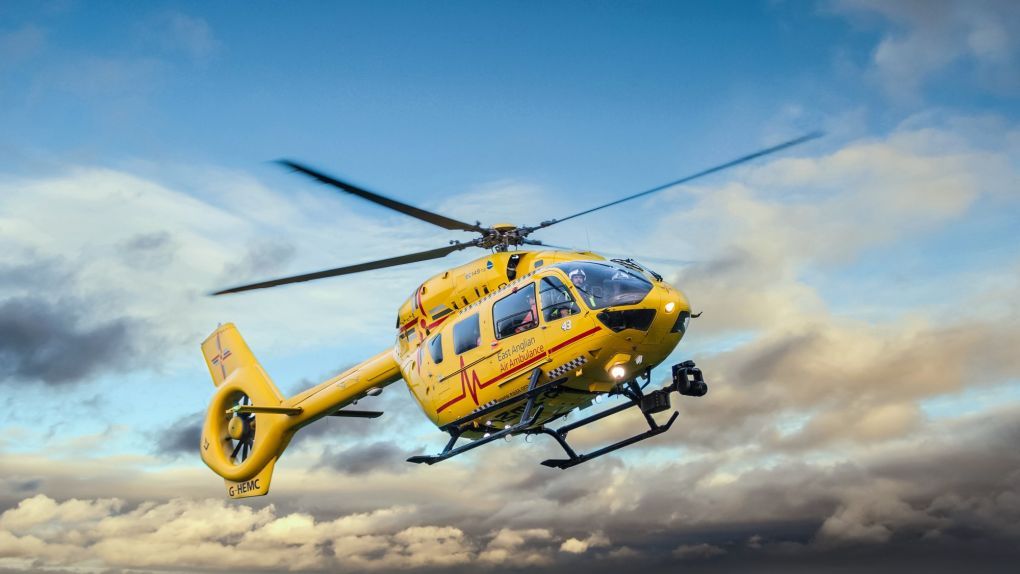
Comparison of deliberate self-harm incidents attended by Helicopter Emergency Medical Services before and during the first wave of COVID-19 in the East of England
View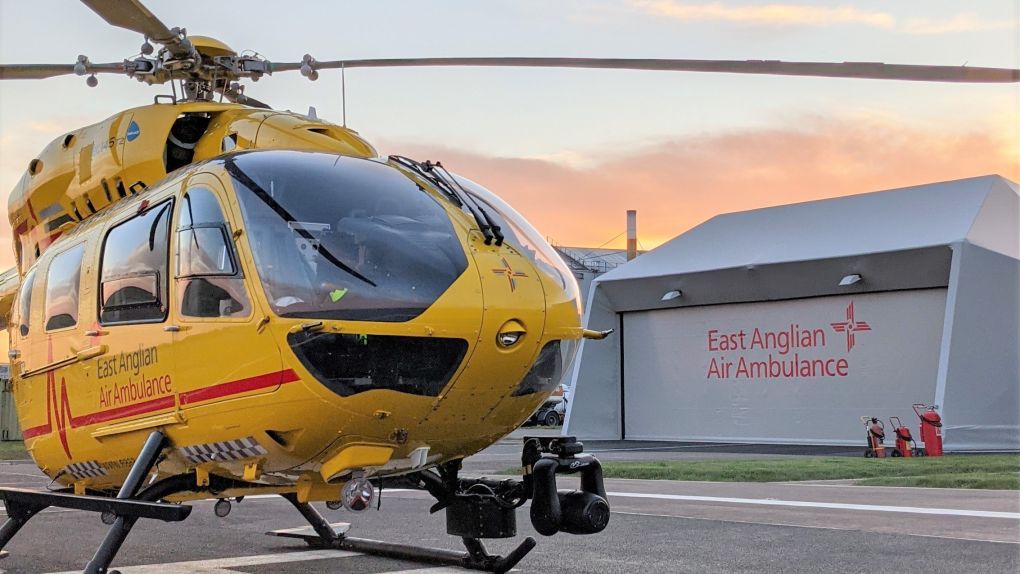
RAID Annual Report: August 2020 - 2021
View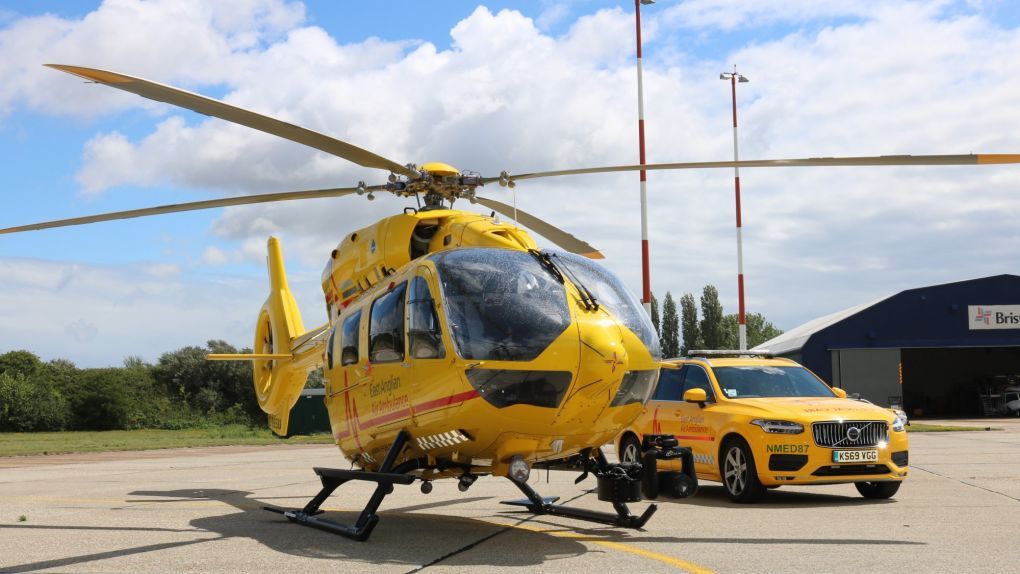
The PaCO2-ETCO2 gradient in pre-hospital intubations of all aetiologies from a single UK helicopter emergency medicine service 2015–2018
View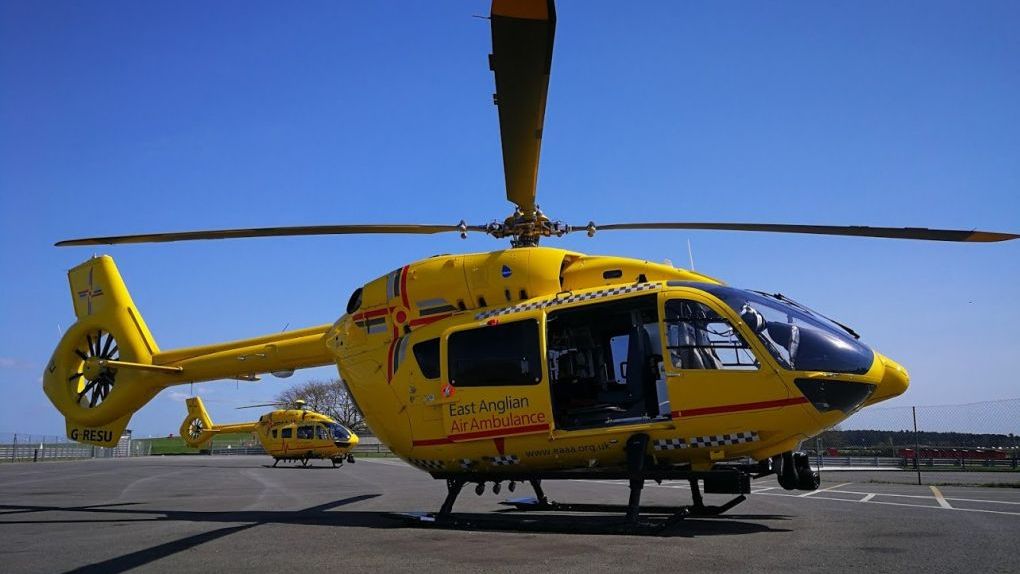
Prehospital determinants of successful resuscitation after traumatic and non-traumatic out-of-hospital cardiac arrest
View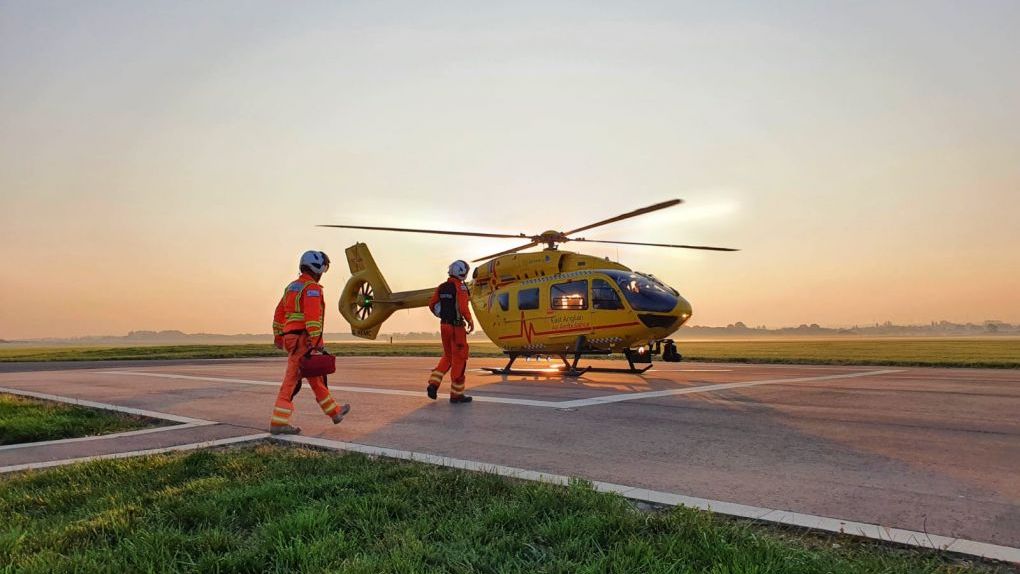
End-tidal and arterial carbon dioxide gradient in serious traumatic brain injury after prehospital emergency anaesthesia: a retrospective observational study
View
Resuscitation of patients with active Do Not Attempt Cardiopulmonary Resuscitation (DNACPR) status after out-of-hospital cardiac arrest
ViewRAID Conference
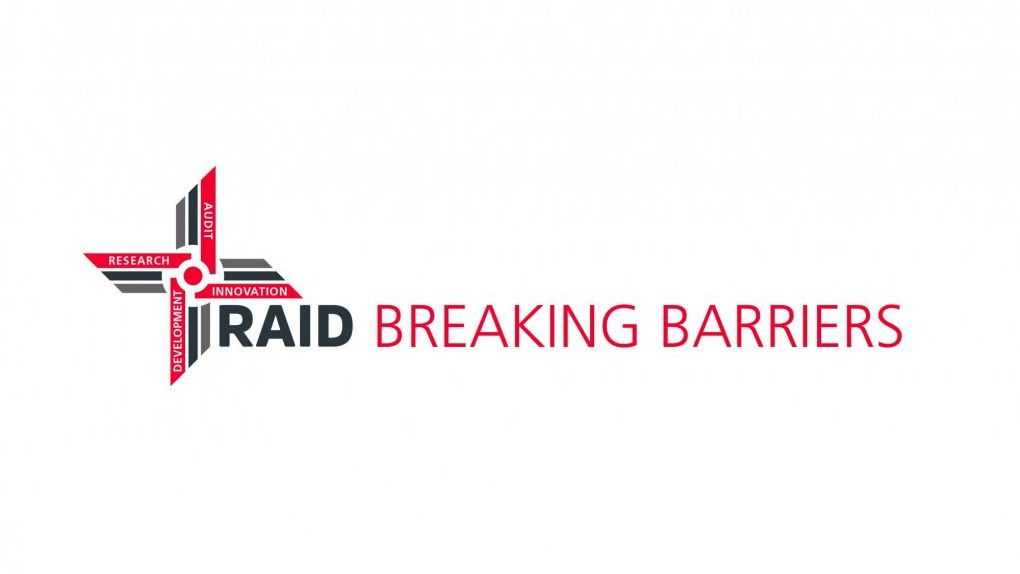
East Anglian Air Ambulance's
Pre-hospital Research Conference
On Friday 19 November East Anglian Air Ambulance held its first dedicated pre-hospital emergency medicine (PHEM) research and development conference, 'Breaking Barriers: national data sets improving collaboration and outcomes in PHEM.'
A hybrid event, sponsored by Zoll, this was the first conference held by the charity’s research, audit, innovation and development group (RAID) and focused on how collaborative working and data sharing across the sector could improve research and development opportunities and patient outcomes.
If you missed the event you can watch each of the sessions back on-demand by clicking the link below.
Watch on-demand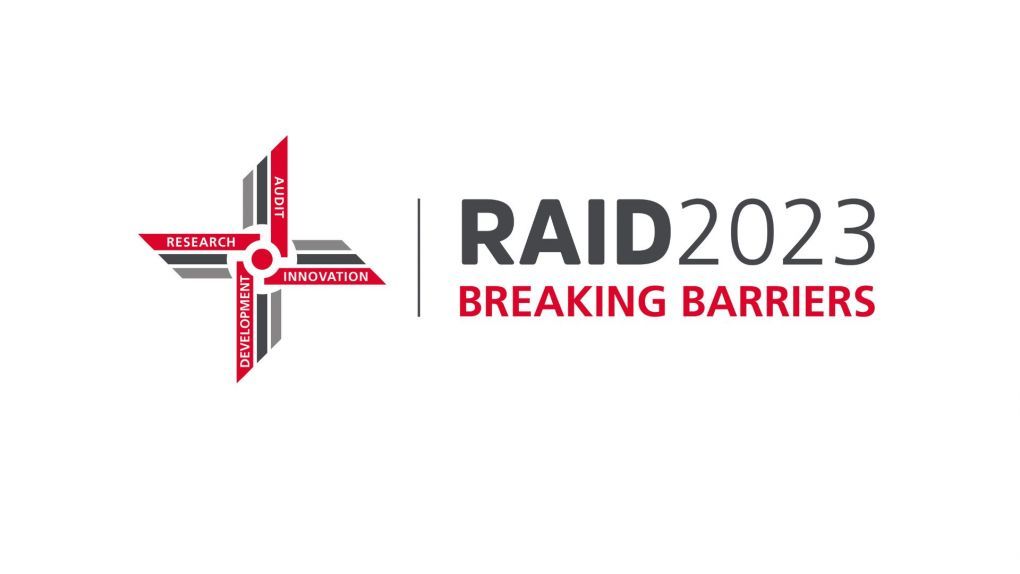
Research, Audit, Innovation and Development (RAID) Conference 2023
On 28 April 2023, we were proud to hold our second Research, Audit, Innovation and Development (RAID) conference following the success of our first dedicated pre-hospital emergency medicine (PHEM) conference in 2021.
The 2023 conference aimed to shine a spotlight on clinical research in the PHEM sector. The theme remained ‘breaking barriers’ but looked more specifically at advances in out-of-hospital cardiac arrest.
Find Out moreEAAA has long been interested in the benefits of clinical research to improve patient outcomes and has done a lot of service evaluation and analysis in recent years, which has led to clinicians publishing papers. When developing the EAAA 2020-2025 strategy, research and development was an important theme.
The RAID group was set up, with EAAA Dr Rob Major as Chair, to have a group of interested clinicians oversee this area, and make sure all research had value in improving the service.
The group is made up of EAAA doctors and critical care paramedics, some of whom have senior academic qualifications and appointments, and Kate Lachowycz, EAAA’s data analyst and subject matter expert.
Rob and Kate work together to refine the research strategy and how it meets the charity’s values. There are also guest members on the group for certain projects or reasons – such as the clinical director of neuro critical care at Addenbrooke’s.
Out of hospital cardiac arrest (OHCA) - EAAA attend about 350 OHCAs a year. We're keen to investigate our data to identify things which could improve these patient's outcomes, and ultimately save more lives.
Traumatic brain injury - we’re currently looking at our data to identify how we could improve the care of patients with traumatic brain injury. This includes the care we provide at the roadside and also, in partnership with Essex and Herts Air Ambulance and the East of England Ambulance Service Trust, the recovery and aftercare of these patients.
Blood - now we’ve finished the national RePhill blood trial we are undertaking some audit work to support EAAA in developing its own system of providing blood to injured patients.
Aftercare - we’re really lucky to have such a well-developed aftercare team. We know how important their work is and are keen to do qualitative research to prove how much this helps patients and their families following an incident we attended.
Other resources
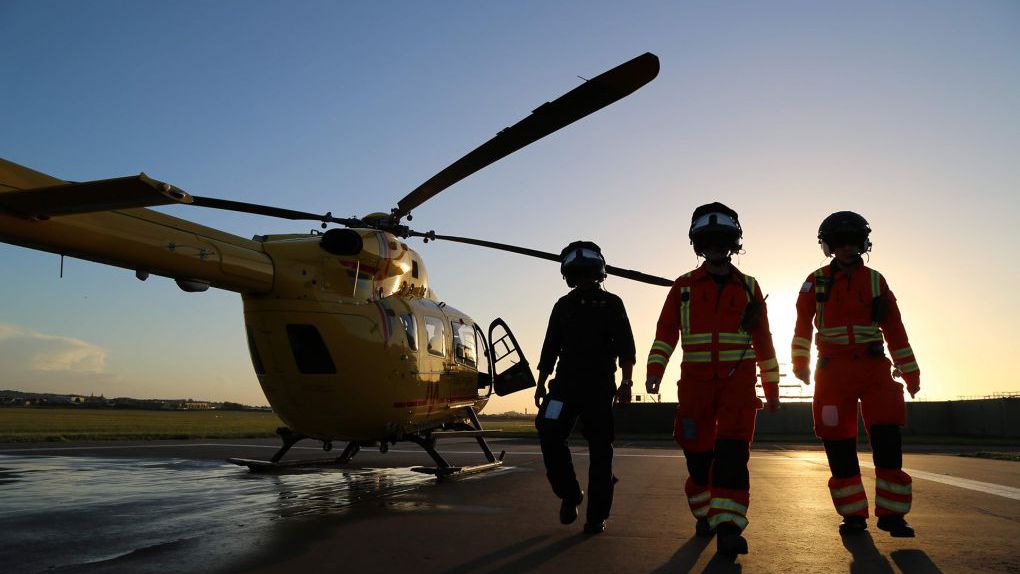
Clinical work
Our clinicians, often consultants in emergency medicine or anaesthesia, are passionate about developing the most advanced emergency pre-hospital treatment for our patients. Find out more about clinical work we have been involved in.
Find out more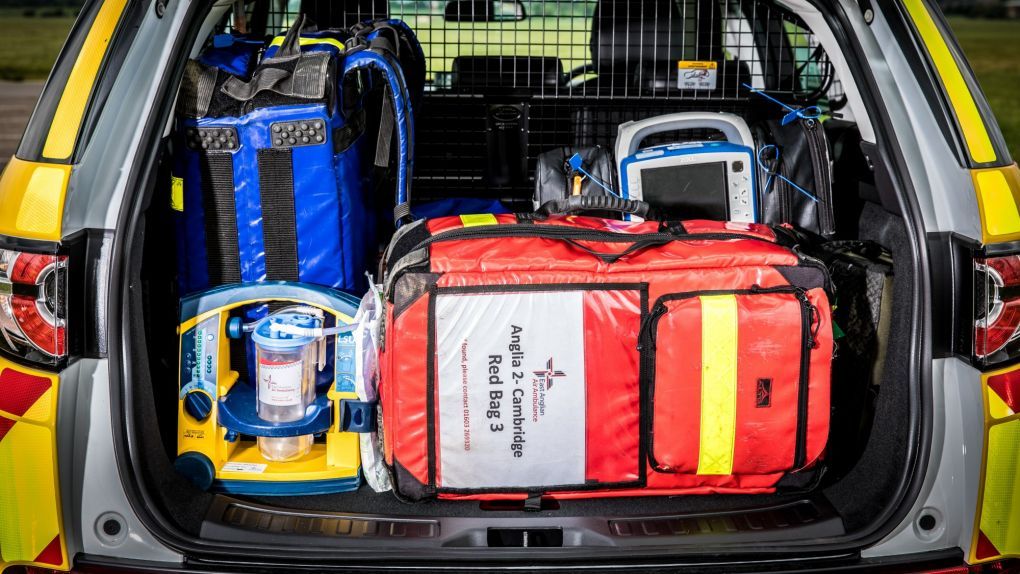
Clinical equipment
Find out more about the latest equipment our frontline crew carry on board our helicopters and rapid response vehicles.
Find out morePatient data privacy notice
Our audit, planning and research work uses data provided by patients and collected by us as part of their care and support. Using this data is vitally important to monitoring service quality, developing new treatments and future planning so that we can continually improve and develop. Patient data is kept secure and always used legally and responsibly. Please see our patient privacy notice to find out more about how patient data is used.
Find out more